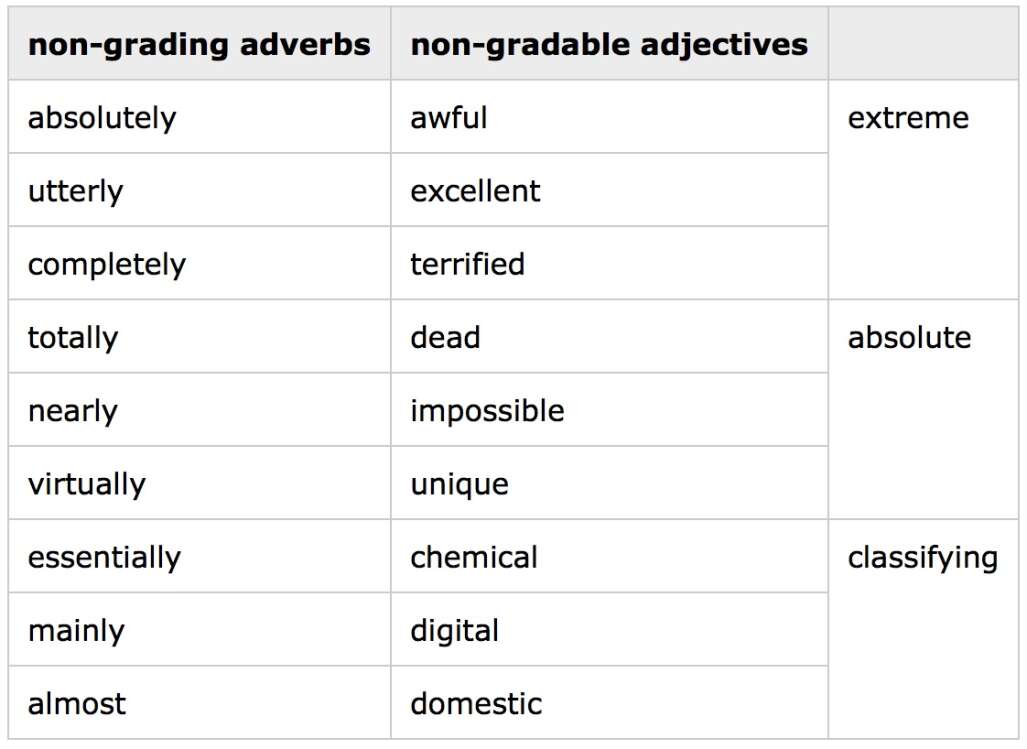Adjectives describe a quality that something has, such as the temperature, appearance or size, and they fall into two categories: gradable and non-gradable. But what does this mean? To describe variations in temperature, for instance, we can use hot or cold, which are gradable adjectives, but to describe the limits or extremes of temperature we use boiling (= very hot) or freezing (= very cold); these are non-gradable adjectives.

Gradable Adjectives
Most adjectives are gradable. This means we can have different levels of that quality. For example, you can be a bit cold, very cold or extremely cold. We can make them weaker or stronger with modifiers:
- She was quite angry when she found out.
- The film we saw last night was really funny!
- It can be extremely cold in Russia in the winter.
Here is a list of some common gradable adjectives and some modifiers that we can use with them.
| Modifiers | a little/a bit → | pretty/quite → | really/very → | extremely |
| Adjectives | angry, big, boring, cheap, cold, expensive, frightening, funny, hot, interesting, old, pretty, small, tasty, tired, etc. | |||
Non-Gradable: Absolute Adjectives
Some adjectives are non-gradable. For example, something can’t be a bit finished or very finished. You can’t be a bit dead or very dead. These adjectives describe absolute qualities. To make them stronger we have to use modifiers like absolutely, totally or completely:
- Thank you, I love it! It’s absolutely perfect!
- Their farm was totally destroyed by a tornado.
- My work is completely finished. Now I can relax.
Here is a list of some common absolute adjectives and some modifiers that we can use with them.
| Modifiers | absolutely/totally/completely |
| Adjectives | acceptable, dead, destroyed, finished, free, impossible, necessary, perfect, ruined, unacceptable, etc. |
Non-Gradable: Extreme Adjectives
Adjectives like amazing, awful and boiling are also non-gradable. They already contain the idea of ‘very’ in their definitions. If we want to make extreme adjectives stronger, we have to use absolutely or really:
- Did you see the final match? It was absolutely amazing!
- After 32 hours of travelling, they were absolutely exhausted.
- My trip home was really awful. First, traffic was really bad, then the car broke down and we had to walk home in the rain.
Here is a list of some common extreme adjectives and some modifiers that we can use with them.
| Modifiers | absolutely/really |
| Adjectives | amazing, ancient, awful, boiling, delicious, enormous, excellent, exhausted, fascinating, freezing, gorgeous, terrible, terrifying, tiny, etc. |